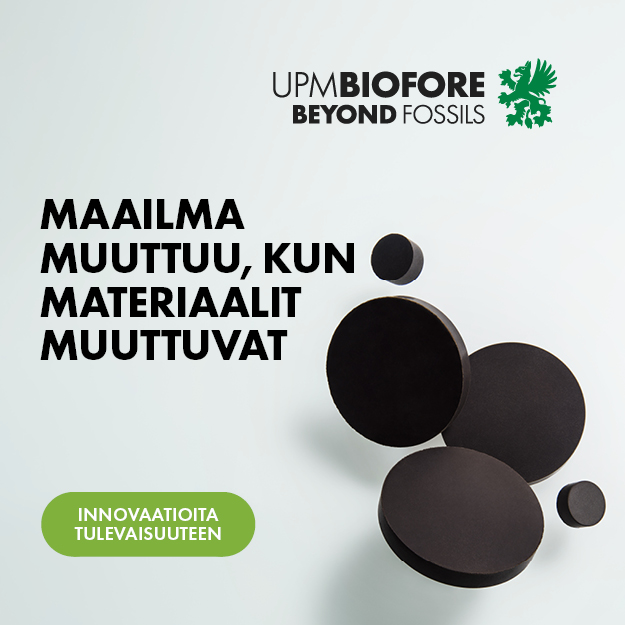EcoEnergy SF biogas plant is under construction in Äänekoski in central Finland next to Metsä Group bioproduct mill. Its production is based on the processing of pulp mill sludge.
EcoEnergy SF produces biogas that will eventually be upgraded into fuel for vehicles and solid biofuel in pellet form which will help replace fossil fuels. Using pulp sludge in the biogas process is a very new innovation on the global scale, so the end product will be entering the markets only in a year’s time.
“We are on schedule, although we started building work with a slight delay early this year. Fortunately, the autumn conditions have allowed us to make quick progress. The process using the sludge from the pulp mill next door will begin in May. Once the bioproduct mill is complete, we will also utilise its co-product flow,” says Mika Laine, Chairman of the Board of Envor Group, the background organisation of EcoEnergy SF.
Collaboration between the technology supplier Envor Protech and Metsä Group started in 2014, when Metsä Group was looking for partners for the production ecosystem to be built in Aänekoski.
Circulating materials is the key objective
Laine highly appreciates Metsä Group’s enthusiasm for collaboration because this allows EcoEnergy to reach the goals of its investment, which is based on the long-term development of expertise.
“We have references and process expertise, and we have long been focusing our product development on the treatment of wood-based sludges. Customers already know what we are capable of.”
Tailoring the biogas plant to utilise pulp sludge is a massive investment from a fairly small operator. The popularity of the circular economy in industry is, however, clearly on the rise.
According to Laine, the benefits are no longer quantified exclusively based on the value of the raw materials or the energy generated in the process, and, in addition, the emission reduction targets have become important.
“The circulation of materials and the resource-savvy approach that it promotes are key in the current business environment. If the benefits were measured only based on the energy generated, the investment would not yet be deemed profitable.”
By upgrading the production chain, the carbon footprint of the entire process is reduced.
“Currently, the big producers believe that small, specialised suppliers have something new to offer for the material circulation. The tradition in the forest industry is to burn similar masses in vast cauldron and take care of everything themselves,” Laine says.
Laine has been in the business for long and seen how slow the commercialisation of new technologies can be.
“And it is unlikely to become any easier, as the process are only getting more complicated.”
It has not always been a walk in a park for EcoEnergy; it has faced a number of challenges along the way.
The EPAD technology developed by Envor Protech creates a good foundation for the treatment of wood-based sludges. However, finding the optimal equipment and processing parameters has required a substantial amount of development work. The company has also been a pioneer paving the way for the introduction of a new type of service concept within the forest industry and a full-scale utilisation of its sludges.
Text: Jaakko Liikanen
Picture: EcoEnergy SF



